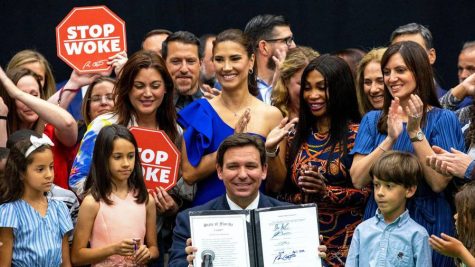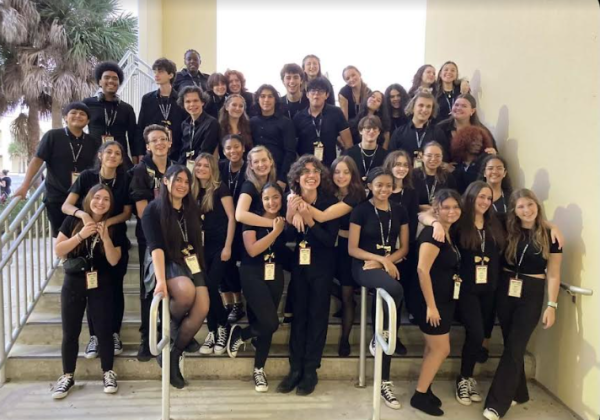NEWS ANALYSIS: J.K. Rowling’s thinly veiled attacks on transgender community is an abuse of her influence

J.K. Rowling, the author of the enormously popular Harry Potter series, has made hurtful comments regarding the transgender community.
There’s a group of people who help young imaginations flourish through their writing. One of those most profound and memorable influencers is Harry Potter’s author J.K. Rowling. However, Rowling’s controversial claims have her back in the spotlight in a completely different way. Last year, Rowling stirred things up with her tweet referring to women as “people who menstruate.” The comment drew immediate backlash due from the transgender community and their supporters.
Responding to the backlash, Rowling defended and justified her claim, tweeting, “I respect every trans person’s right to live any way that feels authentic and comfortable to them. I’d march with you if you were discriminated against on the basis of being trans. At the same time, my life has been shaped by being female. I do not believe it’s hateful to say so.”
Rather than smooth things over, Rowling’s response drew more criticism with some commenting that she only made her ignorance more apparent since Rowling seemed oblivious to the fact that transgender individuals are assaulted and degraded at a much higher rate than those who are not transgender for being born in the wrong body.
Rowling then heightened the level of controversy with the release of the book Troubled Blood in which she seemingly writes of transgender people in a negative light. The British newspaper The Telegraph described her novel as being one where the “moral seems to be: never trust a man in a dress,” an insult to the transgender community that did not align with her previous claims either.
It is clearly very damaging to the transgender community when a highly respected and envied author speaks of them in such bad light. On her own website, Rowling made a pitiful attempt at an explanation of her words while speaking irresponsibly, posting, “as Magdalen was a great believer in the importance of biological sex, and didn’t believe lesbians should be called bigots for not dating trans women with penises, dots were joined in the heads of Twitter trans activists, and the level of social media abuse increased.”
Additionally, Rowling lists her concerns about the trans community and their defenses, commenting, “I’m an ex-teacher and the founder of a children’s charity, which gives me an interest in both education and safeguarding. Like many others, I have deep concerns about the effect the trans rights movement is having on both.” Many people found it uncalled for that someone who is not a part of the trans community, yet has picked her battles with them, is offering criticism in response to the anger received.
Daniel Radcliffe, who played Harry Potter in the film versions of Rowling’s popular series of books, came forward to address Rowling’s actions. Shutting down her claim that she would stand with the community if she felt they were being discriminated against, Radcliffe commented, “According to The Trevor Project, 78% of transgender and nonbinary youth reported being the subject of discrimination due to their gender identity. It’s clear that we need to do more to support transgender and nonbinary people, not invalidate their identities, and not cause further harm.” He then followed up with the simple statement that “transgender women are women,” clearly upset by what Rowling has insinuated. Emma Watson, who played Hermoine Granger in the Harry Potter film series, also spoke up in support of the transgender community.
As the transgender community continues to battle discrimination and bullying, it also has the responsibility of finding friends, figuring out who they are, and transitioning. Without the encouragement of celebrities, people may not be as accepting because celebrities could use their influence to encourage their fans to also be accepting of people who are different, causing an overwhelmingly higher rate of acceptance for transgender individuals.
















